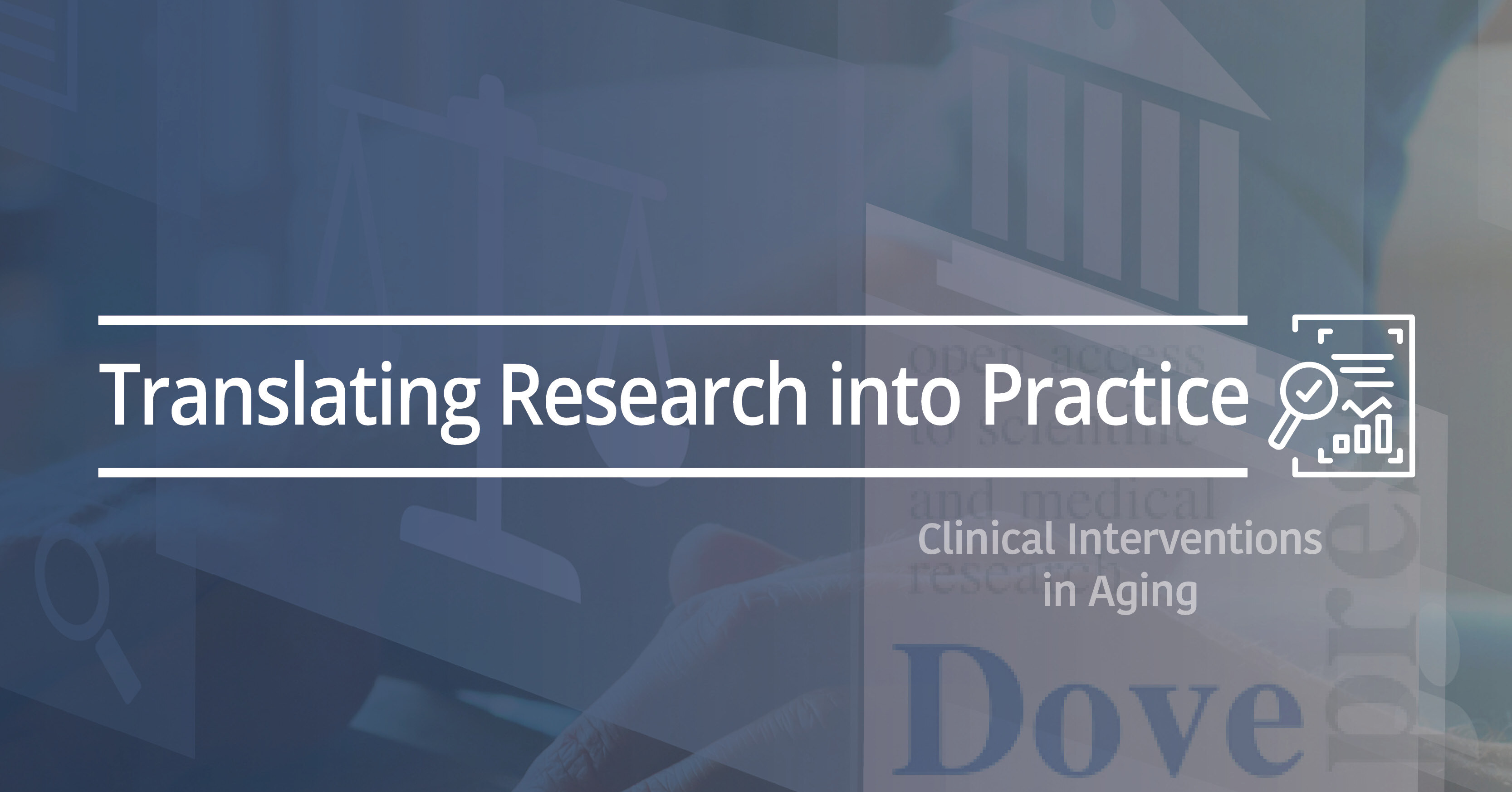Featured Article
Article Title
Aging Stigma and the Health of US Adults Over 65: What Do We Know?
Authors
Julie Ober Allen; Department of Health and Exercise Science, University of Oklahoma, Norman, OK, USA; Research Center for Group Dynamics, Institute for Social Research, University of Michigan, Ann Arbor, MI, USA
Nadine Sikora; Department of Health and Exercise Science, University of Oklahoma, Norman, OK, USA
Abstract
This narrative review assessed the current state of research on aging stigma and health relevant to US adults ages 65 and older. We adopted a stigma framework to highlight aging stigma as a meaningful social construct and the complex ways in which it may be harmful for health. We identified 29 studies of various types (experimental, intervention, cross-sectional quantitative, longitudinal quantitative, and qualitative) published between 2010 and 2023 that investigated relationships between concepts related to aging stigma and health. Aging stigma was associated with poor short- and long-term health outcomes spanning cognition, psychological wellbeing, physical health, and hospitalizations. The premise that aging stigma is harmful to health was moderately well supported, while evidence that health influenced aging stigma was weak. Collectively, studies provided insight into several mechanisms through which aging stigma may affect the health of older US adults, while also highlighting areas for future research. Potential strategies for addressing aging stigma as a public health hazard were discussed.
Keywords
Ageism; perceptions of aging; discrimination; prejudice; stereotypes; stereotype threat
Summary of Research
“Stigmatized people are often considered to be fundamentally different, which is used to justify social distancing and differential treatment. These limit access to opportunities and resources, result in loss of status, restrict self-determination and rights, and are associated with a range of negative outcomes including poor health. The concept of stigma has been applied to diverse sociodemographic characteristics, behaviors, lifestyle circumstances, and health outcomes. One category laden with negative stereotypes that has received limited attention in the stigma literature is old age. While research on the social construction of aging and old age has grown in the past 15 years, this work typically adopts the vocabulary and framework of ageism rather than aging stigma. While closely related, the theoretical conceptualization of stigma prompts consideration of some aspects of how our society thinks about and treats aging, older adults, and old age that are insightful in a review of what we know about aging stigma and how it may affect the health of US adults ages 65 and older” (p. 2093).
“Research shows that societal beliefs and attitudes about aging and older adults in the US are dominated by narrow, overwhelmingly negative stereotypes of how older adults should behave, what they should look like, and what are reasonable and appropriate expectations of aging. Once categories of differences are established, they are generally taken for granted and become ingrained, normative, and widespread. Old age has been described as the most deeply rooted, unquestioned, and socially acceptable stigmatized category affecting a sizable percentage of the US population… Aging stigma is believed to affect health through multiple pathways. Older adults who internalize aging stigma may have negative self-perceptions, poor psychological health, and begin to embody negative stereotypes related to old age. Feeling threatened by aging stereotype may generate psychological distress, cognitive load, and coping responses with ramifications for health” (p. 2094).
The study “conducted a comprehensive review of published empirical research examining relationships between concepts related to aging stigma and health among US adults over 65. Aging stigma variables were conceptualized as reflecting negative stereotypes, prejudices, and associated discrimination related to aging and older adults that were either invoked (eg, exposure to ageist primes or materials) or captured (self-reported survey data)... For each article, [the researchers] extracted information on the study type (experimental, intervention, quantitative, qualitative), data source and study design, sampling methods, sample characteristics with an emphasis on descriptive statistics related to age, the ways in which aging stigma was operationalized, the health variable(s) assessed, and a summary of findings relevant to aging stigma and health” (p. 2096-2097).
“Findings from 29 articles reflecting a range of study types provided moderate support for the premise that negative aging stigma is associated with a variety of poor short- and long-term health outcomes spanning cognition, psychological wellbeing, physical health, and hospitalizations among US adults ages ≥65. This was generally consistent with the findings of other review articles assessing associations between concepts related to aging stigma and health among more age and geographically diverse samples” (p. 2110).
“Research investigating aging stigma and cognitive health represented the largest proportion of studies meeting the eligibility criteria for the current review (a health category investigated in 52% of articles) and was more heavily represented than in other reviews on ageism and health… Experimental and some intervention studies demonstrated the immediate effects of stimulating stereotype threat in explicit, subtle, and contextual ways on older adults’ cognitive status, as well as on their short-term psychological health and stress-sensitive physiological indicators. These studies provided additional evidence that aging stereotype threat may be a mechanism affecting older adult health. However, the short follow-up periods, small convenience samples, and controlled laboratory environments characteristic of these studies limit our capacity to draw conclusions about potential long-term health effects of aging stereotype threat among diverse community samples. Further, findings from studies investigating associations between aging stereotype threat and cognition were the most nuanced and challenging to synthesize. Collectively, they suggested that while aging stigma may affect short-term memory and cognitive functioning, effects were irregular—applying to some forms of cognition but not others and only under some conditions” (p. 2110).
“Slightly less than a third (28%) of reviewed studies investigated associations between aging stigma and psychological wellbeing. Affect or mood, measured in two experimental studies using the Positive and Negative Affect Scale, was not associated with aging stigma. In contrast, more specific indicators of psychological wellbeing such as anxiety and depressive symptoms were associated with higher levels of aging stigma in studies of all types, cross-sectionally and longitudinally. Participants in qualitative studies specifically noted ways in which their psychological wellbeing was affected by aging stigma, predominantly, but not exclusively, in negative ways” (p. 2110).
“Physical health was investigated in 24% of included articles. Quantitative studies were particularly well represented, which was fitting given that many physical health outcomes do not demonstrate variations or change over the short timeframes characteristic of experimental studies and many of the reviewed intervention studies. Across quantitative and qualitative studies, aging stigma was associated with adverse physical health without exception, with investigated outcomes ranging from functional health and chronic pain to chronic health conditions and diseases” (p. 2111).
“Collectively, the diverse types of research studies included in the current review provided fairly consistent and robust evidence that aging stigma may be harmful for a variety of health outcomes, with mixed findings for health behaviors, among US adults ages 65 and older. Experimental and intervention studies built the case that aging stigma may be associated with short-term health outcomes, while cross-sectional and longitudinal quantitative and qualitative studies documented relationships between aging stigma and long-term health outcomes” (p. 2111).
Translating Research into Practice
“While the current review only identified a small number of predominantly brief, individually focused interventions to reduce the potential harms of aging stigma on health, initiatives to raise awareness about aging stigma and its harms, reframe narrative about aging and older adults, and reduce age-based discrimination have grown in recent years. These initiatives may benefit from implementation science and systematic evaluations. Taking advantage of these areas of expertise would help identify and test theorized mechanisms of change, some of which were not well articulated, justified, or supported in the reviewed articles. This work could be marshalled for ongoing quality improvement, identification of best practices, and sharing of key elements with others interested in launching their own initiatives. Finally, systemic and rigorous efforts to develop and evaluate initiatives seeking to address aging stigma are essential to make the case that while aging stigma may be harmful to health, this relationship can be disrupted. One final topic warranting consideration is the language we use. Currently, phrases such as “older adults” and “older people” are recommended for referring to this age category of people, as this terminology is perceived as being less likely to evoke negative stereotypes related to aging than other options. The stigma literature also advocates for careful selection of word choices. However, they recommend a more nuanced approach. This consists of dispensing with language suggesting that a stigmatized category defines a person (eg, schizophrenic) and instead prioritizing the person while also communicating a label if relevant (eg, person with schizophrenia). Perhaps, a future development in combating aging stigma and its harms will be to refer to “people of advanced age” or “adults with more years”” (p. 2112-2113).
Other Interesting Tidbits for Researchers and Clinicians
“First, although this review employed systematic methods, we may have missed some research providing insight on aging stigma and the health of US adults ≥65 years old, especially studies disseminated in languages other than English, books, and the grey literature. Second, while we were purposeful in limiting our review to studies conducted with samples comprised predominantly of US adults ages ≥65 to identify nationally- and culturally-specific patterns of aging stigma and health, we recognize that research conducted with a broader age range and geographic footprint provides important information on the phenomena of aging stigma and health more generally. The current study is intended to complement other systematic reviews on this topic conducted with more heterogeneous samples (eg, ages ≥4022, ≥5021, and ≥6023, all of which included studies from across the globe). Third, consistent with a stigma framework, we only included articles if they had aging stigma variables that tapped into negative aging stereotypes. While aging stereotypes are predominantly negative and have become more negative in recent years, some aging stereotypes may be considered positive or complimentary (eg, benevolent ageism). Yet, stereotypes of all kinds disregard older adults’ individuality, reinforce narrow ideas of what older adults are supposed to be like, may be burdensome or patronizing, and are believed to be harmful to the health and wellbeing of the older adult population. Finally, we did not formally evaluate the quality of studies included in the review due to the diversity of study types included. Instead, we elected to mine this body of literature for its collective insight with some attention to indicators of quality that readers may consider. For these same reasons, a meta-analysis was not appropriate” (p. 2113).





























